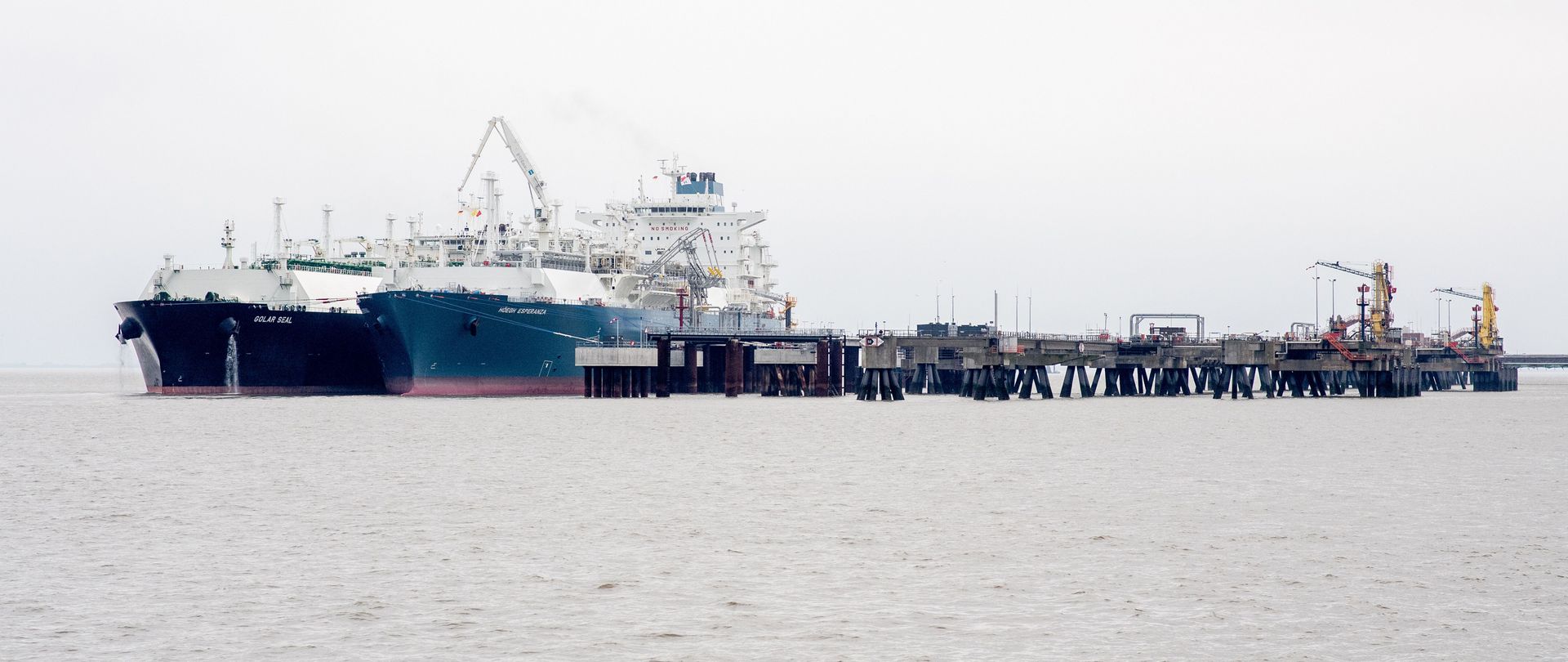
An LNG tanker is moored next to the specialised vessel ‘Höegh Esperanza’, which is used as a floating platform to land and regasify LNG from tankers.
© picture alliance/dpa | Hauke-Christian Dittrich
Energy Security
Energy security in the narrow sense is traditionally viewed from the perspective of import dependency. Dependency on OPEC and the Arab region for oil and on Russia for natural gas plays (or has played) a central role in this context. In a broader sense, however, policymakers must focus on a range of risks if they want to ensure energy security: physical disruptions to supplies, geopolitical changes such as (inter)national conflicts, political and legal developments, economic changes such as price developments or growing demand in producer countries, but also environmental and climate policy risks. Last but not least, the expansion of renewable energies also brings new challenges for energy security and geopolitics.
Publications
-
Sabotage of Submarine Cables and Pipelines as a Use of Force and Armed Attack
in: International Law Studies (ILS), 106 (2025), 173–205 -
Europe and the Emerging Geopolitics of Electricity Grids
in: Friedrich Ebert Stiftung - Politics for Europe, FES Just Climate, Brussels, 21.5.2024 (online) -
Toward a hydrogen import strategy for Germany and the EU
Priorities, countries, and multilateral frameworks
Research Division Global Issues, Working Paper 2023/No. 1, June 2023, 28 pages -
Geopolitics and Energy Security in Europe
How do we move forward?
Friedrich Ebert Stiftung, FES Just Climate, Brussels, January 2023 (online) -
Connecting Ukraine to Europe’s Electricity Grid
Technical Details and Hard Geopolitics
SWP Comment 2021/C 57, 24.11.2021, 8 Pagesdoi:10.18449/2021C57
-
Nord Stream 2 and the Energy Security Dilemma
Opportunities, Options and Obstacles for a Grand Bargain
SWP Comment 2021/C 46, 28.07.2021doi:10.18449/2021C46